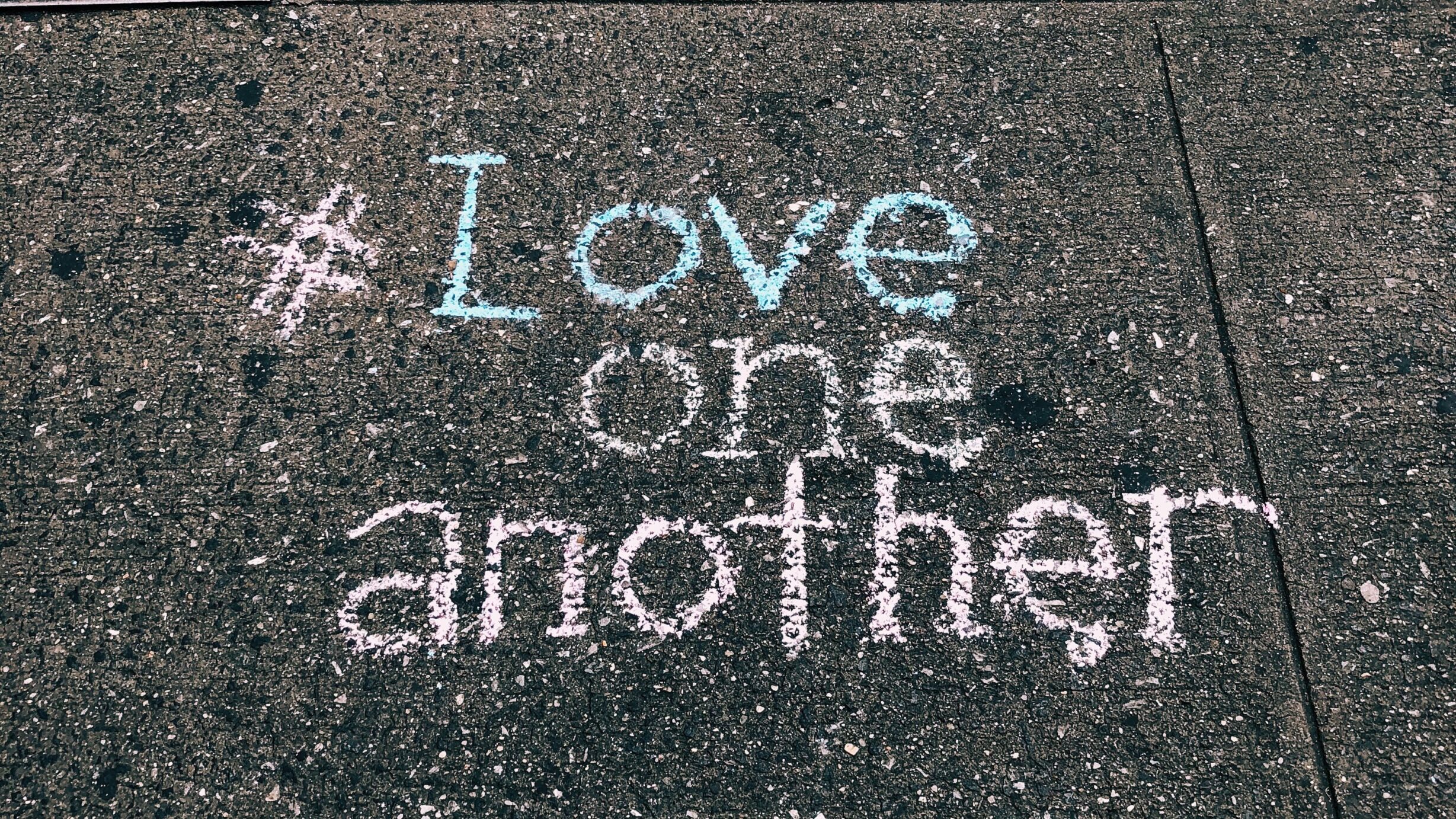LOVING OTHERS WELL

How do you define love? In the old movie Love Story, love means never having to say you are sorry, but I have never found that to work. The word love brings many thoughts and feelings to our hearts and minds. Many poets have expounded on it’s virtues, describing it romantically. Old rock and rollers even said “Love stinks.” How are we supposed to know what love is then?
I make no apologies about my mom being my spiritual hero. She taught me about Jesus and his love for me. Mothers are meant to be unique and play significant roles in nurturing their children; fathers do, as well. During our daily discussions my mom made an interesting statement I have never forgotten, “When you have a child, you will begin to understand how much I love you and how much more God loves you.”
Love is one of those words used so casually in our Western culture it has lost its value. When asked where you want to eat, the reply may be, “Let’s go down to that place on the corner—I love their chips and salsa.” Perhaps you love the look of a new outfit or car? I love Bluebell homemade vanilla ice cream, but I do not love what it does to my waistline. We had a pet for fifteen years and we had a hard time when she had to be put to sleep. She became almost human in her behavior with us and was a part of our family. We loved her. Could that love be the same as your love for your spouse or your heavenly father?
It is no accident Scripture uses three different descriptions for love. The Hebrew word for love was ahab, it was used in various forms, but the same word. The Greeks use phileo and agape which differentiated between types of love. You are familiar with these definitions, but are you discipled in them?
Love can be a verb or a noun in our language. However, love is definitely a verb in discipleship. Love is an action that must be demonstrated and acted upon. My mother unconditionally loved me, which she acted upon depending on the situation and its need. When I was a child and would get in trouble, I responded to relieve the anger: “I love you.” I didn’t realize I was trying to use this statement to ease my trouble. My mother replied to my quick answer with, “Show me.”
Love requires showing; discipleship of the family is showing love in discipline and celebration, in disappointment and delight—love demonstrated over all things. When my son was born, my thought patterns changed. Suddenly, I no longer focused on just myself or my wife, Jayne; we focused on another. We learned some valuable lessons about trusting God when a lot was out of our control. We learned that our son was not the center of our life but a part of our life. If we were to be good parents, good friends, and good disciples, God needed to be the center of our relationship.
We were discipled to understand that our marital relationship was best when God was the center of our life. We modeled it for our son; this is love in action. I understood what my mother was trying to teach me by modeling a love for God that enabled her to love me more by showing Christ to me by how she loved me.
We were imperfect in our love and parenting, just like our parents were not perfect in their model. We learned that part of loving means admitting when we are wrong and modeling forgiveness and restoration. I make no claims of perfection. My mantra is we all struggle, let’s struggle well. We struggle with our sin and loving others as Christ would have us love; let’s join with God and others who want to struggle well.
When the church began in Acts, the Bible says they had all things in common; this does not mean they all looked the same, dressed the same, or liked all the same things. The common factor was centering God in their lives and joining with others who desired to follow God. They shared the same fears of failing, the same hopes of succeeding, striving to keep their life balanced and centered by loving God first.
God enables me to love my wife better, to love my son better, and to love my neighbor as myself. These are not actions that come naturally to a sinful heart. When I read the Word of God, I see examples of how he first loved me and wants what is best for me and all those he has given me to influence. All goodness comes from God alone, so why wouldn’t I go to the source first?
Some around us do not know how to love because they haven’t connected with the source, Jesus. The world has redefined love in so many confusing ways, it is essential for us to define it correctly through God’s word. The only way to recognize false love is by seeing the original, the author of love, and its true meaning. Our society concludes that love is free and has no cost. God says that love costs everything to be perfect and unconditional.
God demonstrated this for us with the gift of his son that we might know the truth of his love and the hope of his plan. John 10:10 states it very simply: “The thief comes only to steal, kill, and destroy; but I came that they may have life, and have it abundantly.”
Following our own selfishness into sin, steals our hope, kills our heart, and destroys our ability to love. Following Christ gives us life, not just living, but abundant life filled with the love of God, enabling us to love others far beyond ourselves, glorifying God.
We learn how to love, to live, teach, and disciple as Christ, when we join others who want to be discipled and make disciples. Join us at The Bonhoeffer Project and learn how to be disciple makers together.
This post originally appeared at: Loving Others Well — The Bonhoeffer Project
If you have enjoyed reading this, please consider joining our email list!











